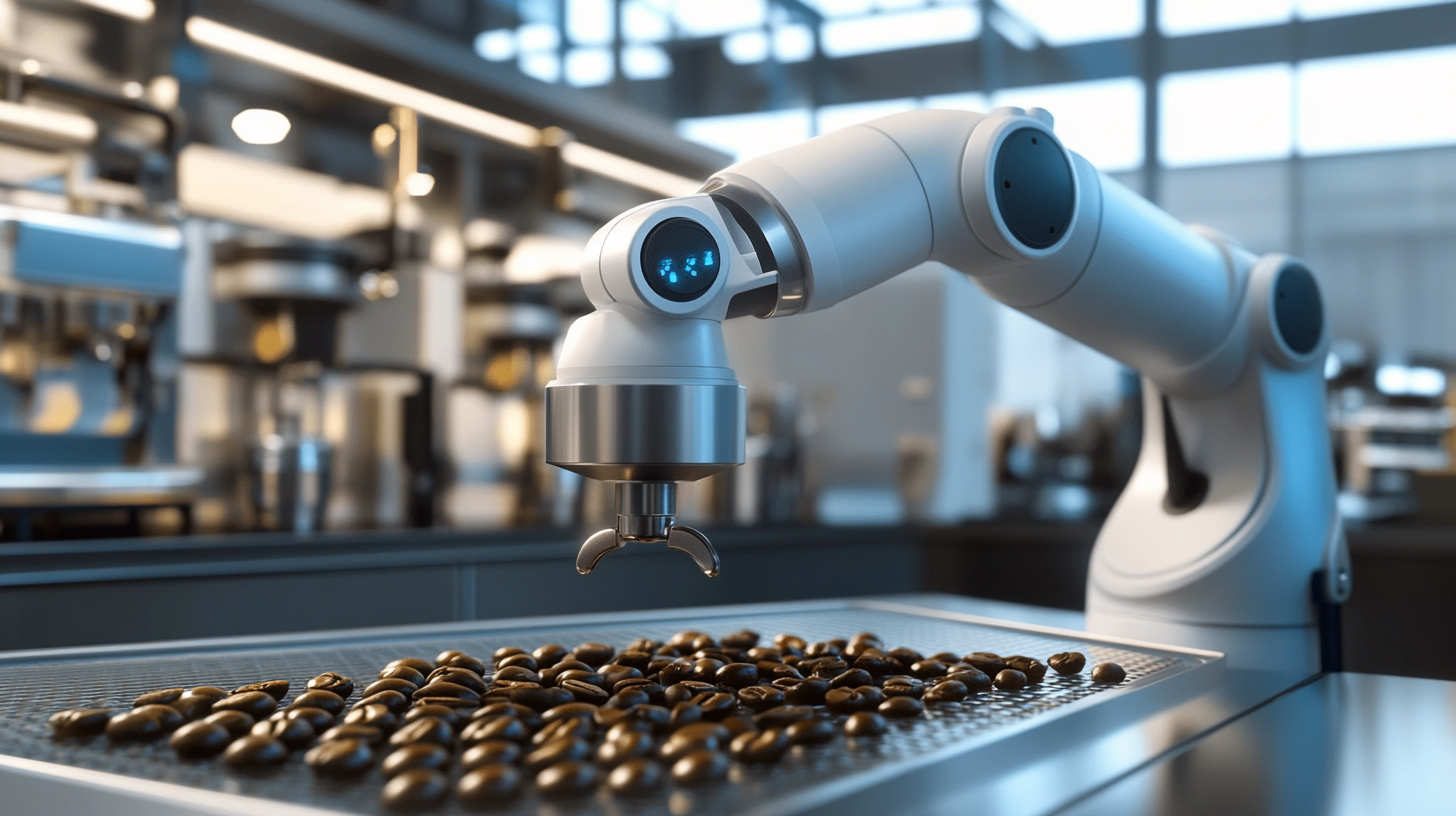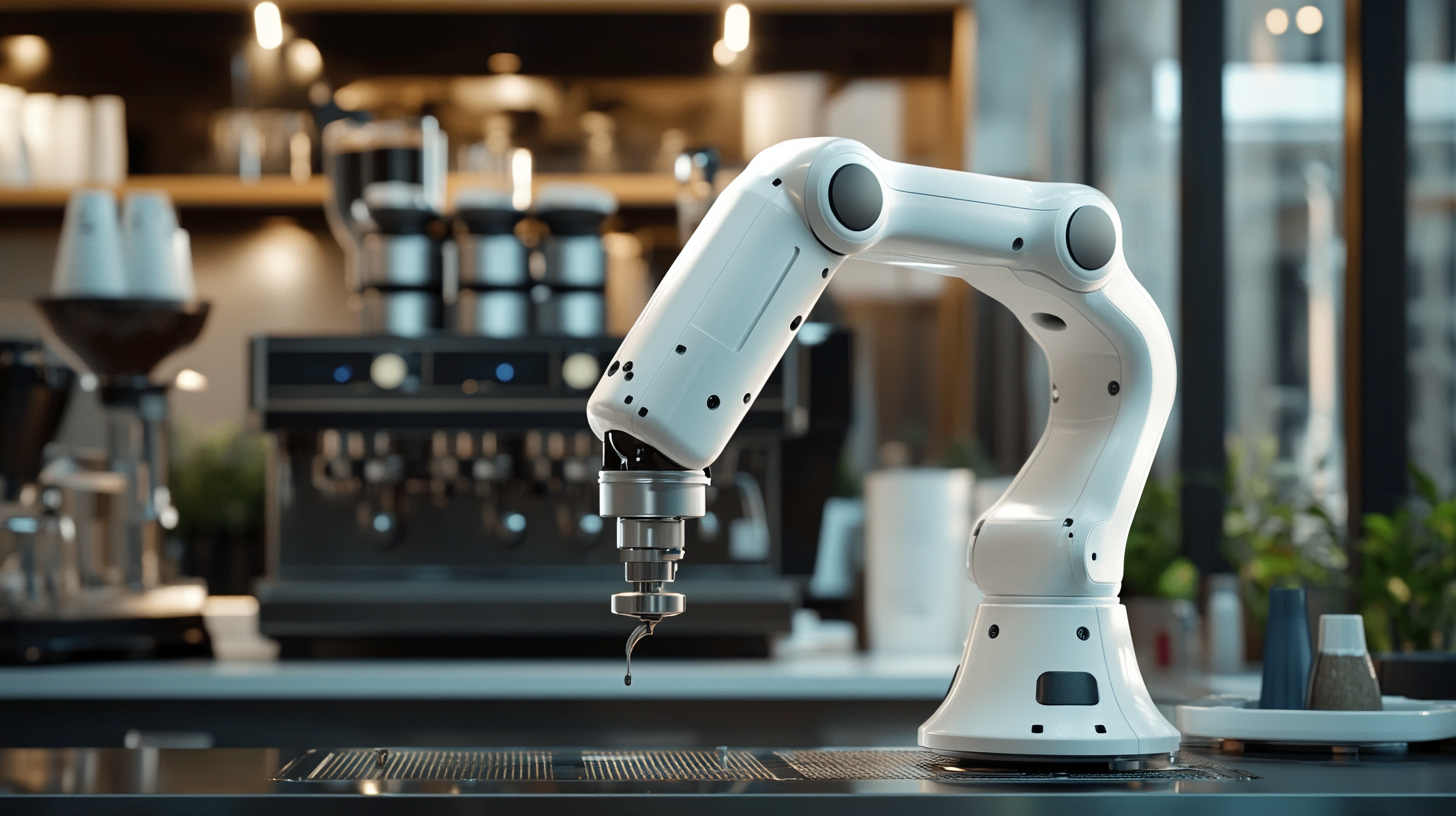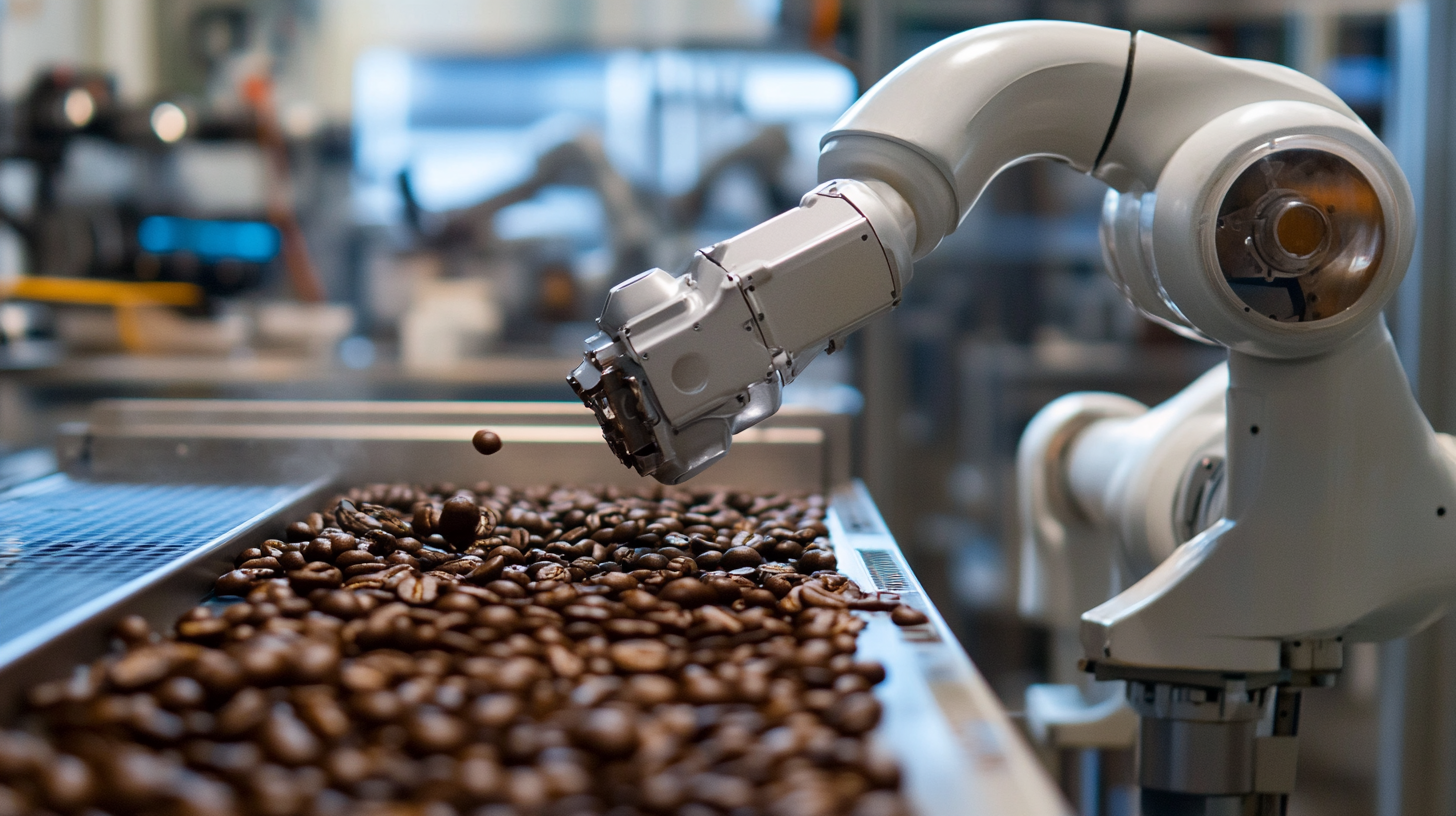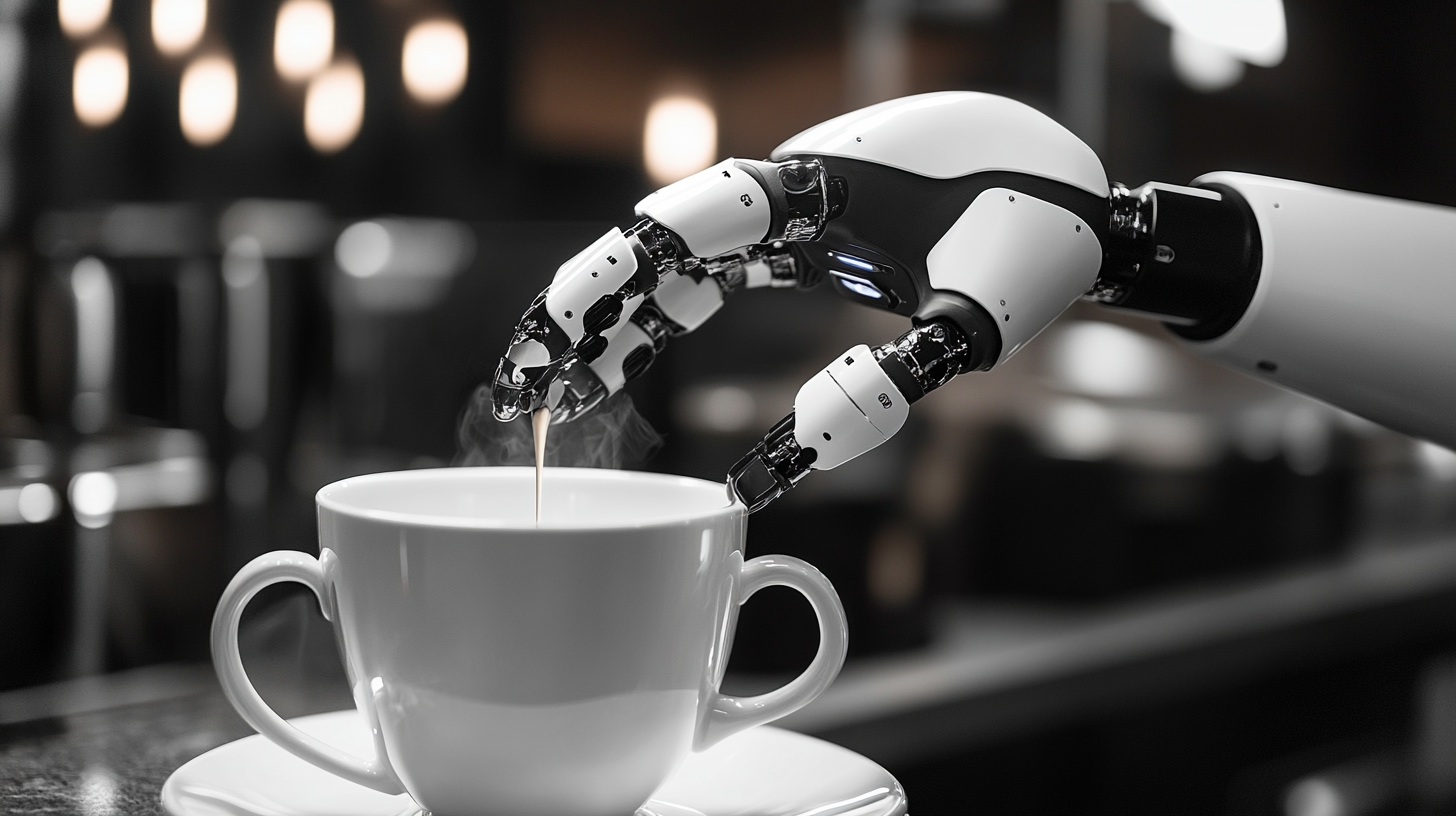Navigating International Certification Standards for Robot Arm Coffee Makers: A Comprehensive Guide for Global Sourcing
In the rapidly evolving world of robotics and culinary innovation, the Robot Arm Coffee Maker stands out as a remarkable fusion of technology and creativity. As more businesses and entrepreneurs look to incorporate this cutting-edge device into their operations, understanding the various international certification standards becomes paramount. Navigating the intricate landscape of regulations and compliance can be overwhelming, especially for those new to global sourcing. This guide aims to demystify the complexities associated with obtaining the necessary certifications for Robot Arm Coffee Makers, providing a thorough overview of the essential standards that must be met.
Whether you’re a manufacturer aiming to export your innovative coffee-making solution or a retailer looking to import these technological marvels, compliance with international standards is crucial for ensuring safety, quality, and market acceptance. This comprehensive guide will equip you with the knowledge and insights needed to navigate the certification process effectively, paving the way for successful global sourcing of Robot Arm Coffee Makers. Join us as we delve into the key aspects of certification, the importance of adherence, and best practices for staying ahead in this exciting industry.

Understanding the Importance of International Certification Standards for Robotic Coffee Makers
As the market for robotic coffee makers expands globally, understanding international certification standards has become pivotal for manufacturers and suppliers. These standards ensure product quality, safety, and compatibility with various regulations across different markets. According to a recent report by MarketsandMarkets, the global coffee machine market is projected to reach $12 billion by 2025, indicating a significant demand that comes with the need for rigorous compliance with certification measures. International certification standards such as ISO 9001 for quality management and IEC 60601 for safety are essential for robotic coffee makers. Compliance with these standards not only enhances product reliability but also builds consumer trust. A study by the International Organization for Standardization (ISO) found that 75% of consumers prefer purchasing products from manufacturers who adhere to recognized certifications. This preference underscores the importance of incorporating international standards in the design and production phases. Moreover, different regions have specific regulations that must be met. For instance, the European Union has stringent requirements for electrical appliances, which includes compliance with CE marking standards. Non-compliance can lead to significant financial penalties and product recalls. As robotics and automation continue to evolve in the coffee-making sector, aligning with international certification standards will be key to global sourcing strategies and market success.

Key International Certification Standards to Consider for Robot Arm Coffee Makers
When sourcing robot arm coffee makers on an international scale, understanding the key certification standards is crucial. Various regulatory bodies have established specific standards to ensure safety, quality, and environmental compliance. One of the most recognized standards is the International Organization for Standardization (ISO) certification, which validates that the product meets international quality management requirements. Obtaining ISO certification not only boosts consumer confidence but also enhances marketability across different regions.
Another critical certification to consider is the CE marking, particularly for products sold in the European Economic Area. This marking indicates that the coffee maker adheres to European health, safety, and environmental protection regulations. Manufacturers must ensure that their products undergo rigorous testing and quality assurance processes to receive this certification. Similarly, obtaining the Underwriters Laboratories (UL) certification can be essential for products entering the North American market, as it assures consumers about the product’s electrical safety and performance.
Additionally, it is essential to consider environmental certifications such as Energy Star or RoHS (Restriction of Hazardous Substances). These certifications demonstrate a commitment to sustainability and compliance with environmental regulations, which resonate well with eco-conscious consumers. Understanding these certification standards not only facilitates smoother international trade but also enhances brand reputation in a competitive market.

Navigating the Certification Process: Steps for Ensuring Compliance
Navigating the certification process for robot arm coffee makers is essential for manufacturers aiming to enter global markets. Compliance with international standards not only ensures product safety and quality but also facilitates smoother international trade. According to a report by MarketsandMarkets, the coffee machine market is projected to reach USD 5.9 billion by 2025, highlighting the growing demand for innovative solutions, including automated coffee makers that leverage robotics. This growth underscores the significance of adhering to certification standards to maintain competitive advantage.
The first step in ensuring compliance is understanding the relevant standards that apply to robot arm coffee makers. Manufacturers should familiarize themselves with ISO 9001 for quality management systems and IEC 60601 for safety and performance of electronic devices. Furthermore, regional certifications such as CE marking in Europe and UL listing in the United States are critical for demonstrating compliance with local regulations. According to a recent study by the International Organization for Standardization (ISO), compliance with these standards can reduce production costs by up to 20%, making it a financially viable investment for companies.
Once manufacturers have identified the applicable standards, the next step is to conduct thorough testing and documentation. This involves working with accredited laboratories to evaluate the coffee makers against the specified criteria. A report by Deloitte emphasizes the importance of having robust documentation during the certification process, as it not only streamlines approvals but also enhances consumer trust in the product. By effectively navigating the certification landscape, manufacturers can position their robot arm coffee makers for success in an increasingly competitive marketplace.

Challenges in Global Sourcing of Certified Robot Arm Coffee Makers
Sourcing certified robot arm coffee makers for international markets comes with its share of challenges. As the demand for automation in coffee brewing rises, manufacturers face hurdles in meeting various certification standards across different countries. Each market often has unique regulations and safety standards that products must adhere to, complicating the sourcing process. Navigating these requirements requires diligence and an understanding of regional compliance laws, which can differ significantly depending on the target market.
Additionally, the logistics of sourcing certified equipment can prove challenging. Manufacturers often need to ensure that their products are not only certified but also able to withstand the complexities of international shipping and handling. Delays in certification processes, language barriers, and differing quality assurance practices can all lead to setbacks in getting products to the market on time. Suppliers who are not familiar with the local standards can inadvertently cause compliance issues, leading to higher costs and potential market withdrawal.
Another hurdle involves maintaining consistent quality while meeting various certification demands. Balancing the need for innovation and quality with the rigorous demands of certification can strain suppliers and manufacturers alike. As businesses strive for efficient production timelines, ensuring that every product meets international standards can be labor-intensive and costly. Therefore, forming strong partnerships with knowledgeable suppliers who understand the nuances of certification in different markets is crucial for successful global sourcing of robot arm coffee makers.
Future Trends in Certification Standards for Robotics in the Coffee Industry
As the coffee industry continues to embrace automation, the demand for robot arm coffee makers is on the rise. This shift is prompting a reevaluation of certification standards within the robotics domain. One future trend is the integration of more rigorous safety and performance standards specific to robotic food preparation equipment. As manufacturers seek to ensure consumer safety and product reliability, organizations are beginning to establish guidelines that address not only the technical performance of these machines but also hygiene and user interaction protocols.
Another emerging trend is the harmonization of international certification standards. As coffee makers equipped with robotic arms are developed in one country and sold globally, the need for universally recognized certifications becomes critical. This will likely lead to collaborations between different certifying bodies, resulting in streamlined processes and reduced barriers to entry in various markets. Additionally, manufacturers may benefit from certifying their products under multiple standards, which would enhance customer confidence and open new avenues for international trade.
As technology evolves, we can expect the evolution of existing standards to incorporate aspects such as artificial intelligence, machine learning, and data security. These advancements will not only improve the operational efficiency of robot arm coffee makers but also ensure they meet the future demands of consumers who are increasingly focused on sustainability and ethical sourcing in the coffee production chain.

